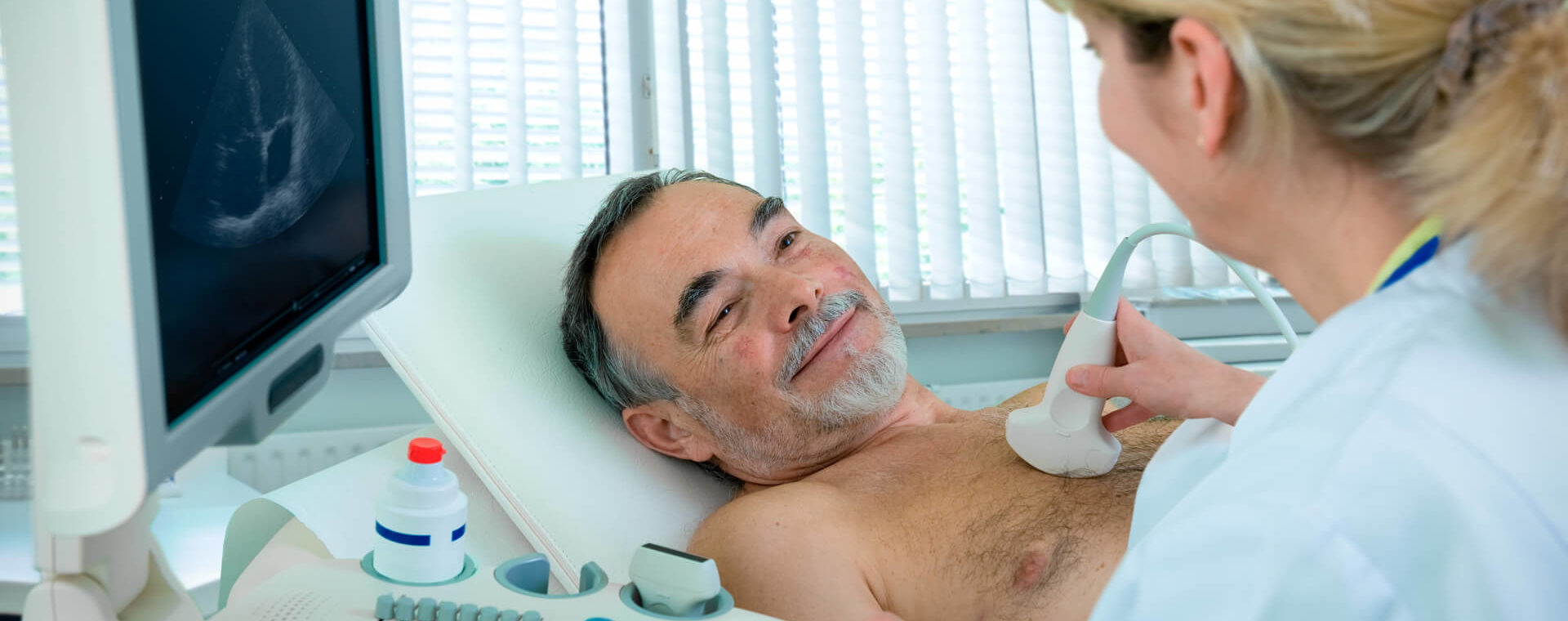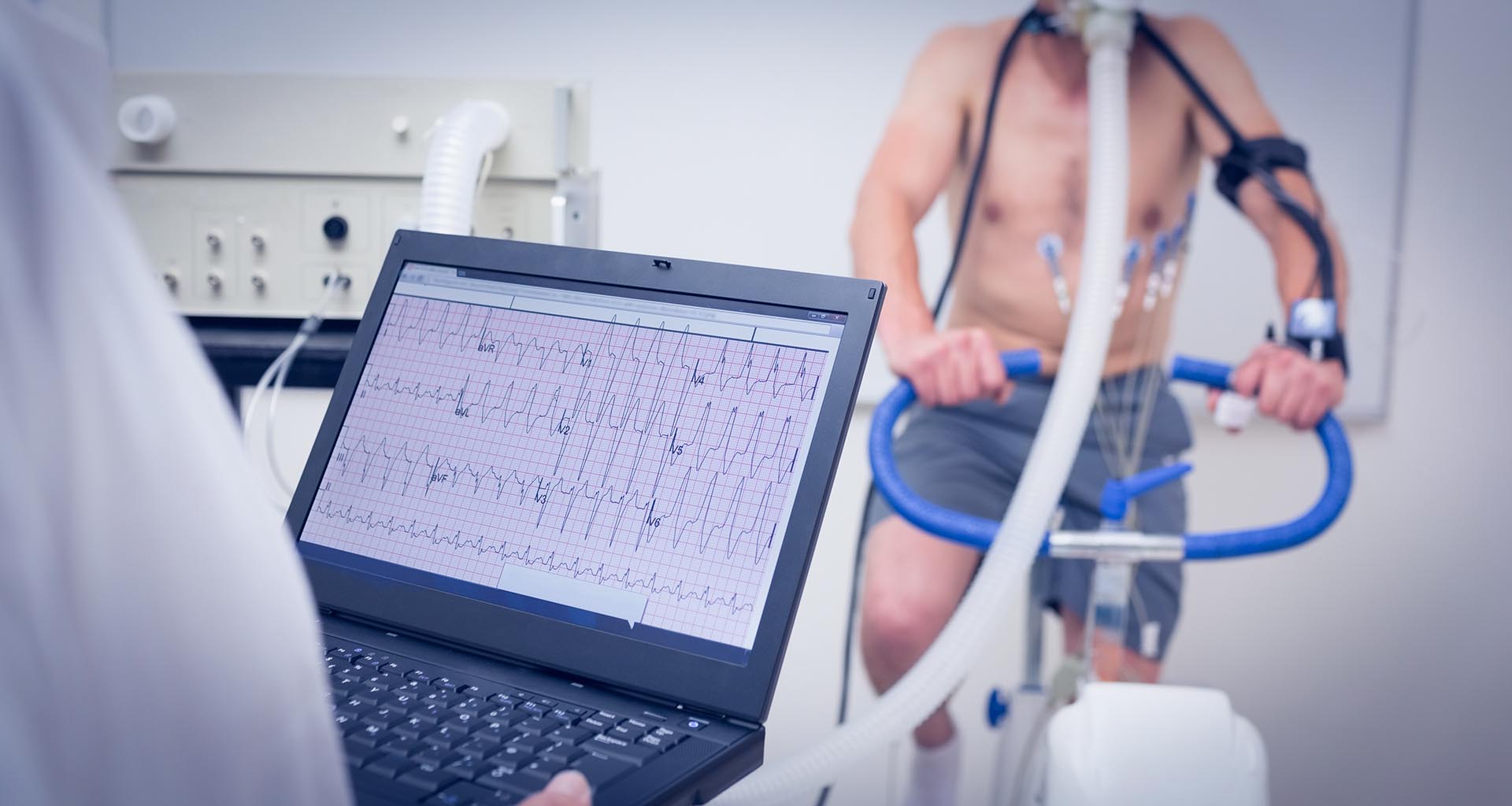
Ultrasound

When it comes to your heart health, early detection is key to understanding your risk factors and preventing the progression of cardiovascular disease before it impacts your quality of life. At Carolina Cardiology & Vascular Associates, we utilize advanced ultrasound technology to diagnose heart disease in a timely manner, empowering you to take charge of your health with effective treatments and beneficial lifestyle changes. Learn more below about how board-certified cardiologist Dr. Dan Bouknight and his team of specialists can help you improve your health with ultrasonic cardiac testing in West Columbia, South Carolina.
What is an Ultrasound?
An ultrasound is a noninvasive procedure that emits high-frequency sound waves to construct images of your heart, arteries and veins. Your doctor uses these images to identify and diagnose heart disease, monitor existing conditions and determine how well current treatments are working. A variety of standard tests utilize this technology, including echocardiograms, carotid artery ultrasounds and lower or upper extremity arterial and venous ultrasounds.

Echocardiogram
An echocardiogram, also known as an EKG or ECG, is a common test used in the diagnosis, treatment and management of patients with known or suspected heart disease. Using ultrasound technology, an echocardiogram provides valuable information that helps your cardiologist determine the overall health of your heart, such as size, presence of tissue damage, cardiac output and diastolic function. Depending on your condition, your doctor may use different approaches to get the best image possible. This may include:
- Transthoracic echocardiogram — Standard echocardiogram where images are taken through the chest wall using an ultrasonic device called a transducer.
- Transesophageal echocardiogram — A type of echocardiogram in which the transducer is placed down the esophagus to produce detailed images of your heart. Often used when your doctor wants a closer look at what’s going on.
- Doppler echocardiogram — An echocardiogram technique that uses the Doppler effect to view the speed and direction of blood flow within the heart.
- Stress echocardiogram — Some heart problems only occur in response to physical activity, so a stress echocardiogram takes images of your heart before and after exercise to assess how it functions under stress.
Carotid Artery Ultrasound
A carotid artery ultrasound is a test that uses ultrasound to examine the carotid arteries, which are the two major blood vessels in the neck responsible for supplying blood to the brain. A carotid ultrasound can detect arterial blockages or narrowing and measure blood flow to assess your risk of stenosis, stroke and other conditions. This test may be performed if you exhibit symptoms or have certain risk factors such as high blood pressure, a family history of stroke or heart disease, diabetes, or a carotid bruit, which is a distinctive whooshing sound in the carotid artery that can be heard with a stethoscope. Your doctor may also recommend a carotid artery ultrasound if you have been diagnosed with cardiovascular disease to monitor your condition. If obstructions or significant narrowing is found, your doctor may order more comprehensive testing and begin treatment to restore healthy blood flow.

Lower Extremity Arterial and Venous Ultrasound
A lower extremity arterial and venous ultrasound is a test used to examine the veins and arteries in the legs, typically from the groin to the ankle. Usually performed if a blood clot or deep vein thrombosis is suspected, this test can find blockages and determine the severity of your condition. It can also detect venous valve defects, stenosis and superficial thrombophlebitis. Your doctor may order this test if you have leg pain or swelling, signs of venous insufficiency, or have a history of deep vein thrombosis (DVT). If your results show a blood clot, your doctor may begin treatment to break it up and prevent it from traveling to the lungs or other parts of your body where it can cause serious problems, such as a pulmonary embolism.
Upper Extremity Arterial and Venous Ultrasound
Similar to tests that examine the veins and arteries in the legs, an upper extremity arterial and venous ultrasound looks at the blood vessels in your arms. An ultrasound transducer is used to scan the full length of your arms from the neck to the wrist, evaluating the health of your blood vessels and revealing obstructions such as plaques or a deep vein thrombosis. Your doctor may order this test if you are symptomatic or have a family history of blood clots.
Contact Carolina Cardiology & Vascular Associates
At Carolina Cardiology & Vascular Associates, your heart health is our priority. By combining advanced industry technology with the expertise of highly trained specialists, Dr. Dan Bouknight and his team are raising the standard of cardiovascular care for patients in the Midlands of South Carolina. If you’d like to learn more about our services and how they can help, contact or call us today at (803) 888-2282 to schedule a consultation.
Schedule Consultation
Schedule Consultation
Call us at (803) 888-2282 or fill out the form below to schedule a consultation with us!

